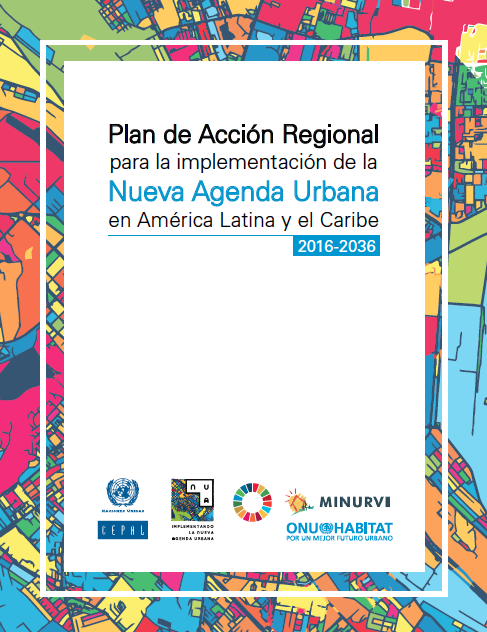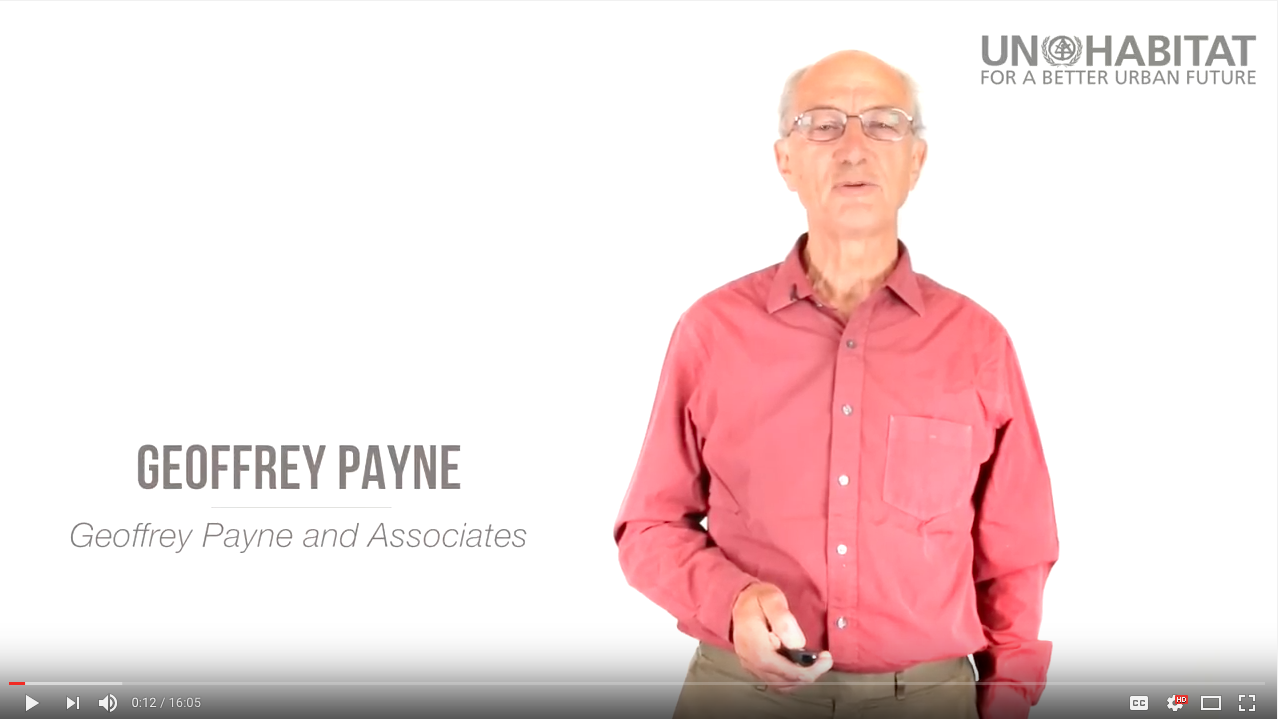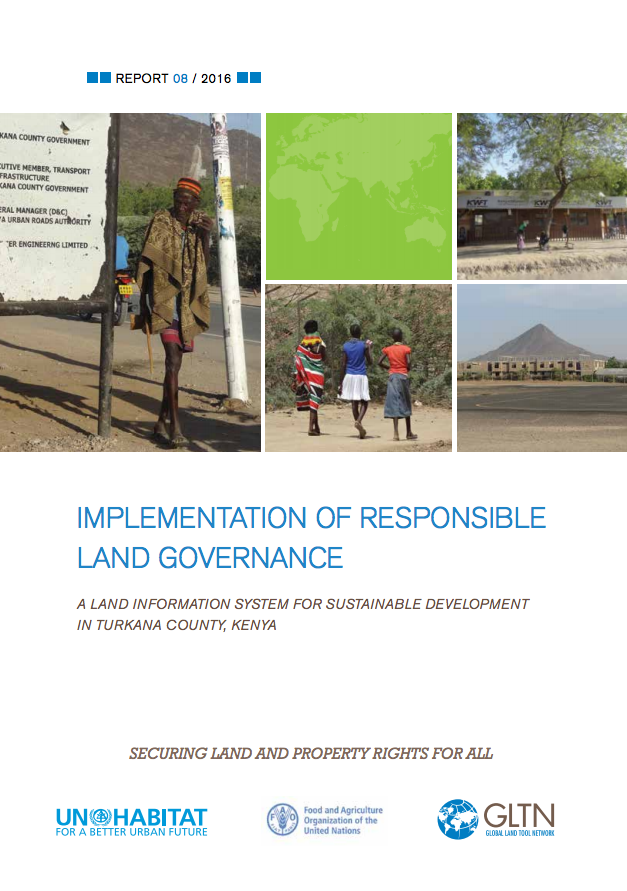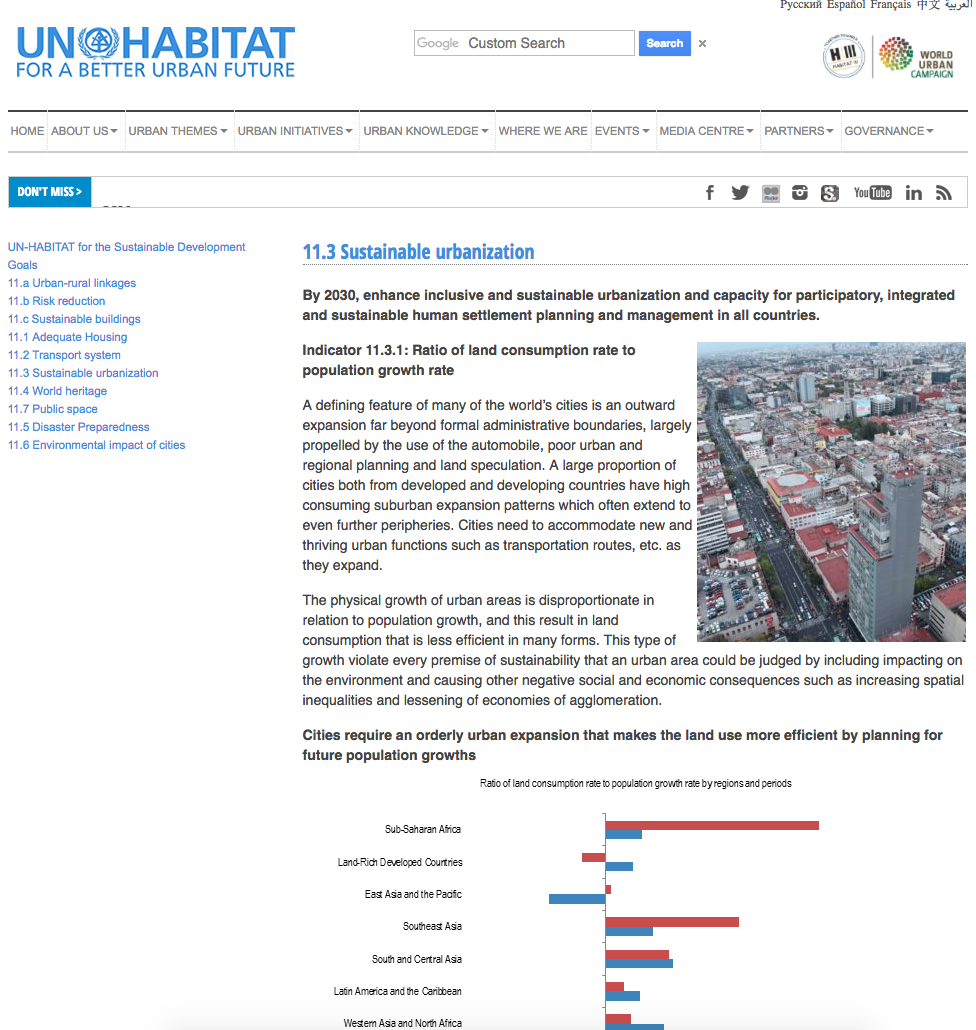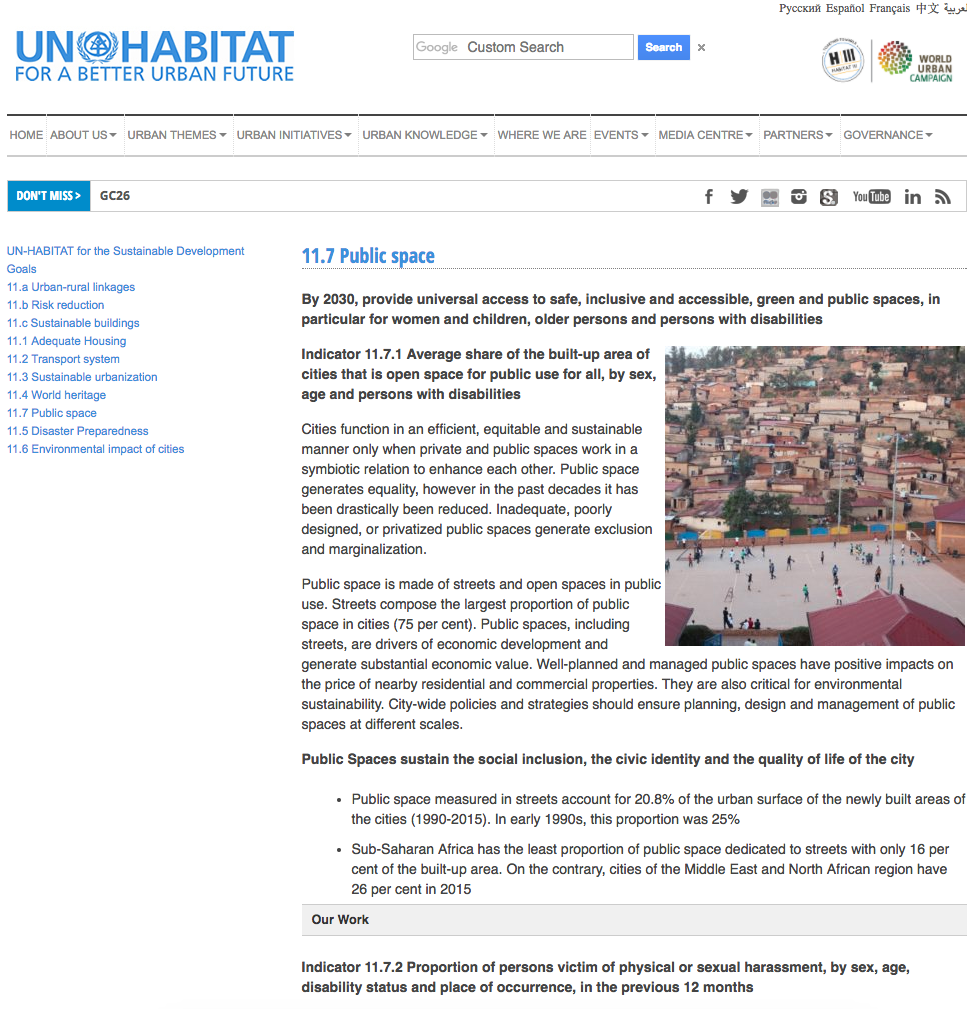Location
UN-Habitat is the United Nations programme working towards a better urban future.
Its mission is to promote socially and environmentally sustainable human settlements development and the achievement of adequate shelter for all. Cities are facing unprecedented demographic, environmental, economic, social and spatial challenges. There has been a phenomenal shift towards urbanization, with 6 out of every 10 people in the world expected to reside in urban areas by 2030. Over 90 per cent of this growth will take place in Africa, Asia, Latin America, and the Caribbean. In the absence of effective urban planning, the consequences of this rapid urbanization will be dramatic. In many places around the world, the effects can already be felt: lack of proper housing and growth of slums, inadequate and out-dated infrastructure – be it roads, public transport, water, sanitation, or electricity – escalating poverty and unemployment, safety and crime problems, pollution and health issues, as well as poorly managed natural or man-made disasters and other catastrophes due to the effects of climate change. Mindsets, policies, and approaches towards urbanization need to change in order for the growth of cities and urban areas to be turned into opportunities that will leave nobody behind. UN-Habitat, the United Nations programme for human settlements, is at the helm of that change, assuming a natural leadership and catalytic role in urban matters. Mandated by the UN General Assembly in 1978 to address the issues of urban growth, it is a knowledgeable institution on urban development processes, and understands the aspirations of cities and their residents. For close to forty years, UN-Habitat has been working in human settlements throughout the world, focusing on building a brighter future for villages, towns, and cities of all sizes. Because of these four decades of extensive experience, from the highest levels of policy to a range of specific technical issues, UN-Habitat has gained a unique and a universally acknowledged expertise in all things urban. This has placed UN-Habitat in the best position to provide answers and achievable solutions to the current challenges faced by our cities. UN-Habitat is capitalizing on its experience and position to work with partners in order to formulate the urban vision of tomorrow. It works to ensure that cities become inclusive and affordable drivers of economic growth and social development.
Members:
Resources
Displaying 61 - 65 of 224Plan de Acción Regional para la implementación de la Nueva Agenda Urbana en América Latina y el Caribe 2016-2036
Este Plan de Acción Regional (PAR) es una propuesta regional basada en el marco global para la implementación de la Nueva Agenda Urbana, resultado principal de la Tercera Conferencia de las Naciones Unidas sobre Vivienda y Desarrollo Urbano Sostenible, Habitat III, realizado en Quito, Ecuador en octubre 2016. La implementación de la Nueva Agenda Urbana en América Latina y el Caribe es fundamental para el desarrollo de los países y para el futuro sostenible de la región.
Global Urban Lectures: Geoffrey Payne - Improving urban tenure security and property rights
Geoffrey Payne outlines five fundamental propositions that are key to his understanding of tenure issues and policy options.
These are:
1) That access to affordable land with adequate security of tenure and associated rights is a pre-condition for realising the goal of adequate housing and poverty reduction;
Implementation of Responsible Land Governance
This publication outlines the process undertaken by UN Habitat/GLTN and The United Nations Food and Agriculture Organization (FAO) Representation in Kenya to support the Ministry of Lands, Physical Planning and Urban Areas Management of the Turkana County Government-Kenya, in establishing a county Land Information Management System based on the Social Tenure Domain Model (STDM). The project was carried out in the context of the United Nations Food and Agriculture Organization (FAO) program entitled, Support for Responsible Land and Natural Resource Governance of Communal Lands in Kenya.
UN-Habitat - SDG 11.3 Sustainable urbanization
A defining feature of many of the world’s cities is an outward expansion far beyond formal administrative boundaries, largely propelled by the use of the automobile, poor urban and regional planning and land speculation. A large proportion of cities both from developed and developing countries have high consuming suburban expansion patterns which often extend to even further peripheries. Cities need to accommodate new and thriving urban functions such as transportation routes, etc. as they expand.
UN-Habitat - SDG 11.7 Public space
Cities function in an efficient, equitable and sustainable manner only when private and public spaces work in a symbiotic relation to enhance each other. Public space generates equality, however in the past decades it has been drastically been reduced. Inadequate, poorly designed, or privatized public spaces generate exclusion and marginalization.

